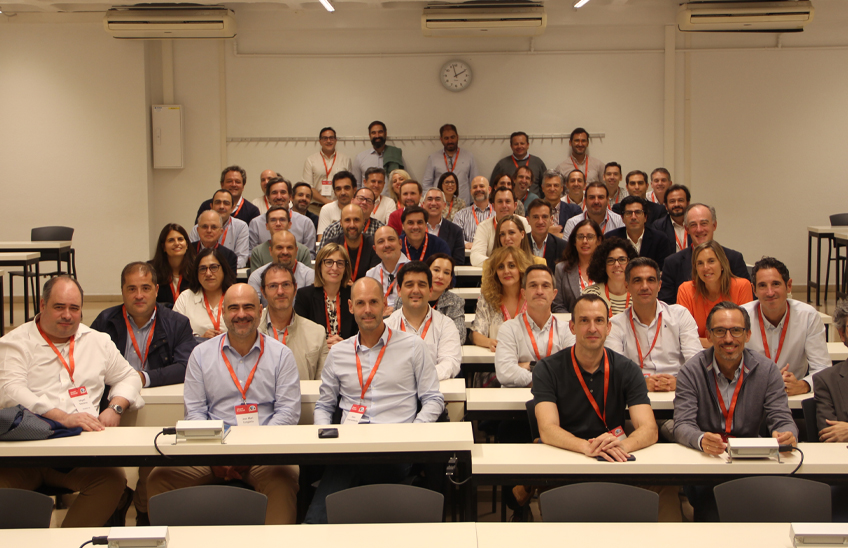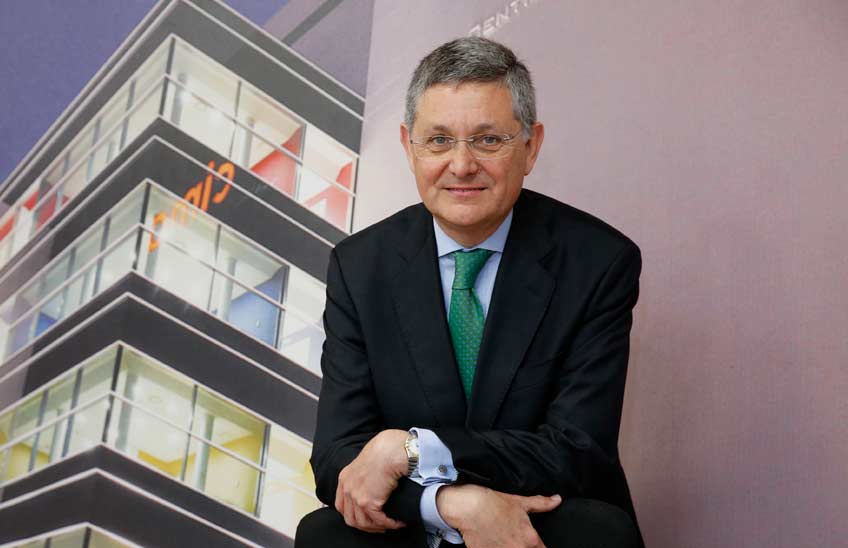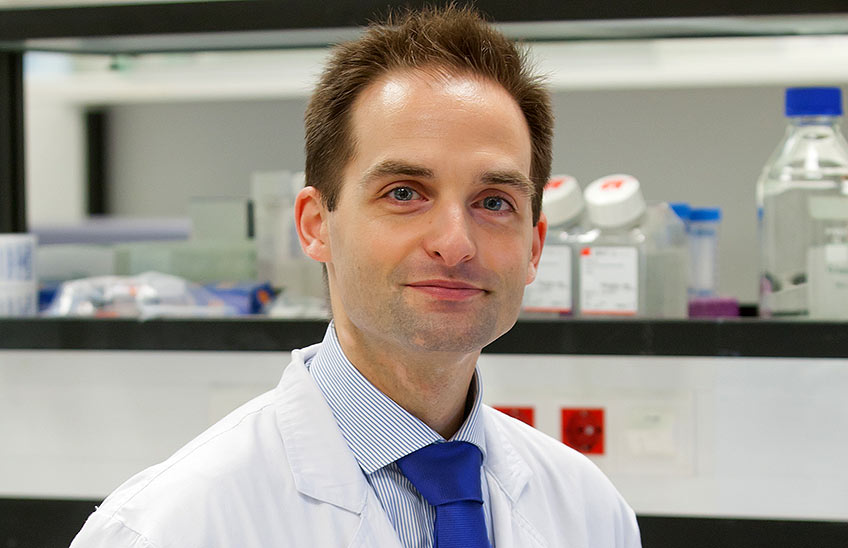Rubén Pío (FAR'94 | PhD'98): "Personalized medicine helps cancer treatments to increase their efficacy and reduces the risk of side effects".
The researcher offered a lecture to the alumni of San Sebastian on Personalized Medicine and the importance of the research to achieve effective treatments.

FotoAlumni/SanSebastian' s alumni at the third session of the Alumni Meetings
03 | 04 | 2023
Last Thursday, March 30, around sixty alumni gathered at the Alumni Meeting San Sebastian. This event was the third of eight events that the University has organized to raise awareness of Strategy 2025 among the alumni community.
The event, which took place at the campus of Tecnun - School of Engineering, began with a exhibition by Paloma Grau (PhD'04), Vice President of research and Sustainability, in which she explained the general lines and projects of the University's Strategy 2025, framed in the sustainable development and in the care of people and the environment.
Next, the Full Professor of Biochemistry , director of the Cancer division of Cima and Deputy Director of the Cancer Center of the University of Navarra, Rubén Pío (FAR'94 PhD'98), explained to the attendees at discussion paper the main characteristics of Personalized Medicine to cure cancer patients. According to the researcher, this disease has become a serious social problem since it affects 10 million people worldwide every year. Dr. Pío explained how "thanks to biomedical research , in recent decades there have been great advances in the knowledge of the mechanisms of tumor progression and their interrelation with our immune system". According to Dr. Pío, the way patients are treated has changed in recent years, and "nowadays, therapeutic decisions are made in multidisciplinary tumor committees and take into account the particularities of each patient, as well as the specific characteristics of the tumor." As explained by researcher, thanks to personalized medicine, treatment increases its efficacy and reduces the risk of subjecting the patient to unnecessary side effects.
At the discussion paper, the professor and researcher made accredited specialization to the importance of early detection to prevent the tumor from spreading. Although in barely a century cancer has gone from being an incurable disease to a curable disease in more than half of the patients, the speaker insisted that "there is still a long way to go and we must not slow down the pace". In this sense, he assured that "we need to continue research to reduce the enormous impact that cancer continues to have on our society".
At the end of the training session, the alumni attendees were able to enjoy a networking meeting to get to know each other.




